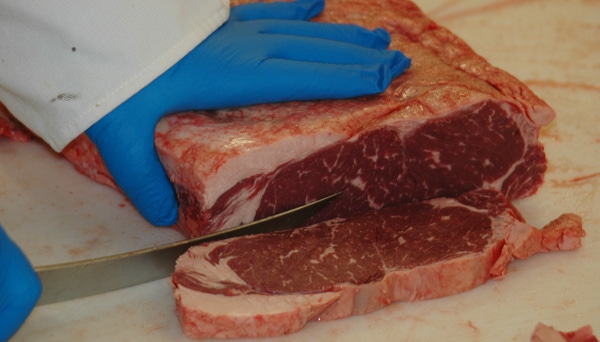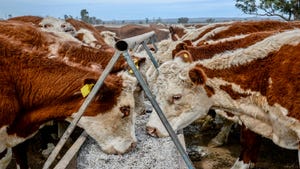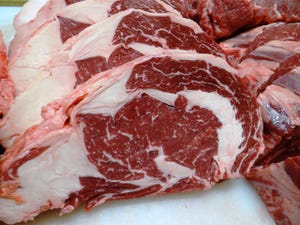Beef Industry Stays Ahead Of Food Safety Issues
Supported in part by the beef checkoff and more than 70 member companies and organizations, BIFSCo helps the industry stay ahead of possible food safety issues.The beef industry should not have to rely on government to know how to produce safe food.
December 27, 2011

Pathogens have been in the news again. An outbreak of Listeria traced to a Colorado cantaloupe farm last fall was responsible for 140 infections and at least 29 deaths in 28 states. It devastated a family farm, ruined the image of a quality product, and damaged the reputation of an industry.
The beef industry can relate. As the kids say, “been there; done that.” But, thanks to unprecedented efforts during the last decade, it’s less and less likely we’ll be there again.
The Beef Industry Food Safety Council (BIFSCo) was created in the late 1990s to bring a science-based, industry-wide approach to beef safety. As a collaborative effort of the entire industry, it establishes a platform to provide every consumer the safest beef product available.
Supported in part by the beef checkoff and more than 70 member companies and organizations, BIFSCo (www.bifsco.org) helps the industry stay ahead of possible food safety issues. It also provides Best Practice documents and a yearly Beef Industry Safety Summit to tackle the challenges in a unified front that supports science, promotes progress and shares knowledge.
That’s no small feat in the fiercely competitive meat industry. But members of BIFSCo recognize beef safety as an industry goal, not a competitive advantage. By raising the bar on beef safety, we have established useable standards for the entire industry.
The defining moment for BIFSCo came when we held our first Summit in San Antonio, TX, in 2003. That event and our subsequent efforts helped the industry move forward in the safety arena, from an industry that feared potential and unknown safety hazards to one that developed processes for implementing successful safety barriers. Because of BIFSCo, we are prepared for safety challenges before they emerge.
In the last 10 years, we have seen continued improvements in those processes. Not sugar-coating anything, we put everything on the table continually and say, as an industry, “at this time, here are the best things we can do to provide the safest beef products to our consumers.”
It’s a strategy that’s improved both industry communications and beef safety. And it’s helped build industry unity in an area that desperately needs it.
It’s been done without government intervention. Make no mistake; there is a place for government in food safety. We certainly involve government regulators in our plans, and we’ve established excellent credibility with USDA’s Food Safety and Inspection Service (FSIS). But the industry should not have to rely on government to know how to produce safe food. Consumers shouldn’t need to turn to the government, either.
The fact is, the role of government is not just scientific. It is social and political. Regulatory agencies are not always science-based. They balance science with media response and what consumers believe.
BIFSCo doesn’t balance science with anything. In fact, everything we do is based on applied science. And we’re using science to not just address current issues capturing the attention of media and consumer groups, but to proactively anticipate issues on the horizon.
On March 7-9, 2012, BIFSCo will celebrate its 10th annual Beef Industry Safety Summit in Tampa, FL. Last year, more than 240 industry professionals in the safety arena participated in the event in Dallas. Regular attendees have said they get more out of sharing knowledge for 2½ days than by going it alone the rest of the year.
It’s a testament to BIFSCo’s core values and philosophy of unity. When it comes to safety, we’re stronger as an industry than we are as competing businesses. We would gladly share that model and our experiences with the fruit and vegetable industry. ❚❚
Nick Nickelson is former chief executive for science and health at Standard Meat Co., which provides meat to such firms as Outback Steakhouse. He is a leader in the field of non-intact meat product safety.
You May Also Like



